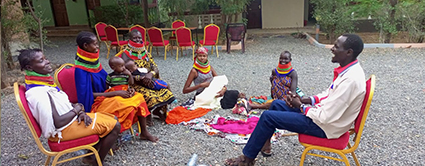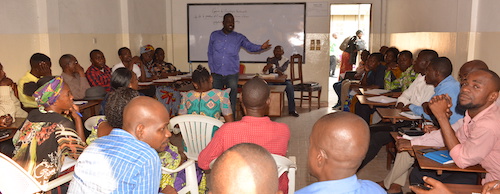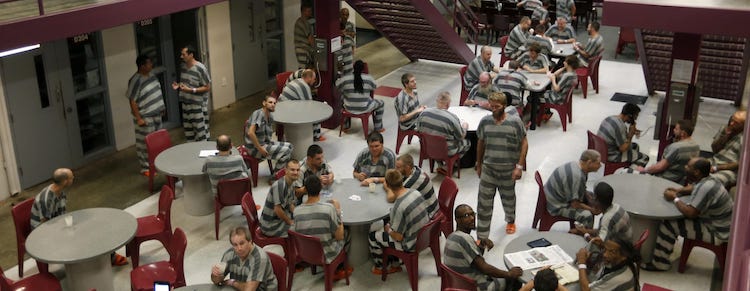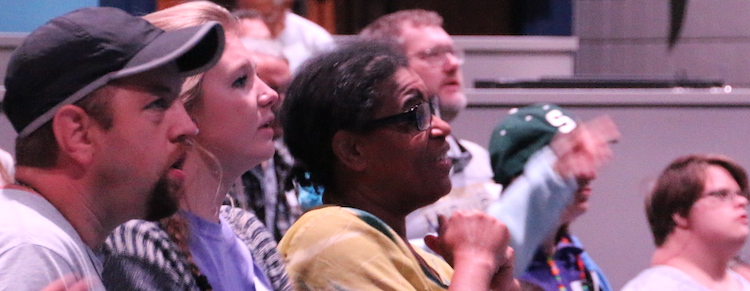Churches
Compiled here are just a few of the innovative ways churches are using STS or its principles in their programs and outreaches.
1. Styles of Usage:
- To fit members’ expectations and traditional protocol, you may want to read story passage in standard “church voice” first before telling it STS style?
- In Children's Church or Sunday School Classes: tell the story several times and have different groups of children take turns acting out the story as it is told
- Lead an interactive STS Bible story discussion as the primary message. Either have the congregation respond to questions out loud or ask rhetorical (thought) questions
- Use Sign Language (ASL) to visually tell a story while the storyteller is telling the story with expression
- Read the story, but with expression, rather than the standard more stoic way of reading
- Challenge listeners to share the story with those inside their circles of influence
2. Church Services (places STS can be used):
- One Sunday per month in regular service
- Sunday evenings
- Teach on passage Sunday morning, then use same story as STS interactive discussion on Sunday evening or in weekday gathering
- Wednesday evenings
- Alternative service (Sunday morning or afternoon or on Saturday evening)
- Once monthly include children in service. Place children up front and tell story. Focusing main on the children, but also include the whole congregation
3. Sunday School (Sunday Small Groups):
- Sunday School at any age level
- Use STS as a small group curriculum
- Challenge class members to learn stories and tell them with actions and expressions with a long term goal of moving members into role of taking turns telling stories in the class
- Use STS as a weekly or once a month curriculum
- Form an Interactive Bible study, all ages welcome (including children) class
4. Special Classes:
- Men - Weekly men participate in a story. Men are then empowered and encouraged to take that story to other men. Those who are married (no matter their reading ability) can serve as spiritual leaders in their homes by telling the stories and leading family devotions
- Youth, ages 5 and up, enjoy, thrive and grow on the interaction and the story
- New Believers Classes: Introduce deep spiritual truths to those even with no church background
- Evangelism Classes: Empower people to naturally and comfortably share their faith
5. Special Projects:
- Evangelistic Outreaches: street witnessing, work among the homeless, nursing homes and retirement centers
- Outreach: Participants invite friends to participate in interactive Bible discussion. Dinner or dessert could be provide or potluck
- Neighborhood “Story at My House.” Weekly, bi-month, or monthly, invite ladies to a host home to participate in a story. Hostess serves coffee or tea, and attendees take turns bringing snacks
- Youth Outreaches: Insert stories when appropriate
- VBS: With any VBS program, tell a story a day for kids to take home
6. Home Fellowships / Small Groups:
7. Counseling:
- STS stories are being used in pastoral counseling, grief counseling, addressing false doctrines, financial counseling, pro-life, with spiritual seekers, family counseling, pre-marital counseling, etc

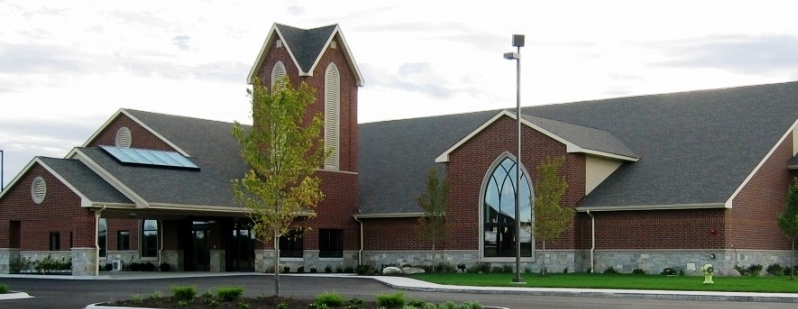


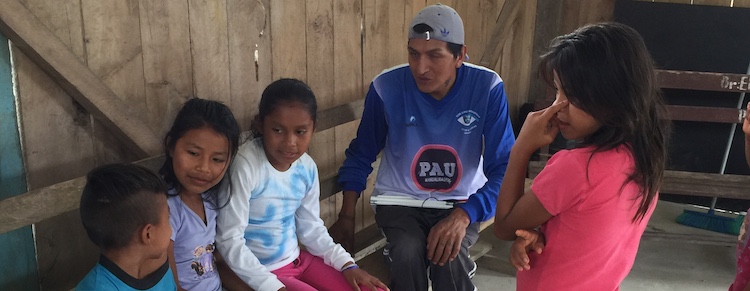
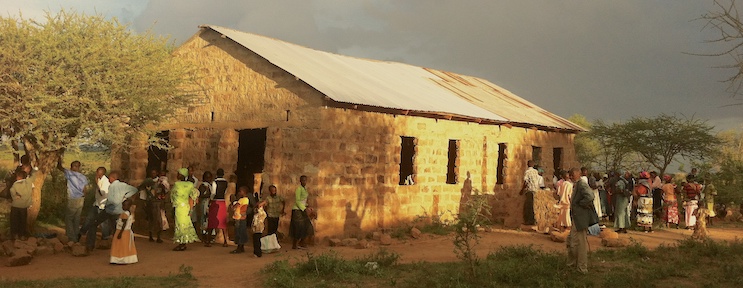

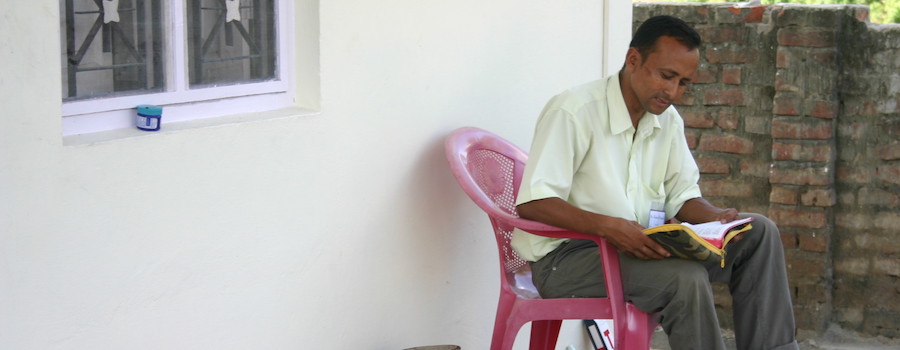
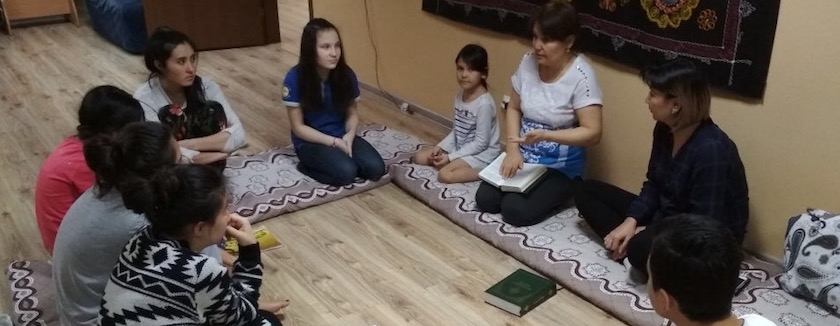
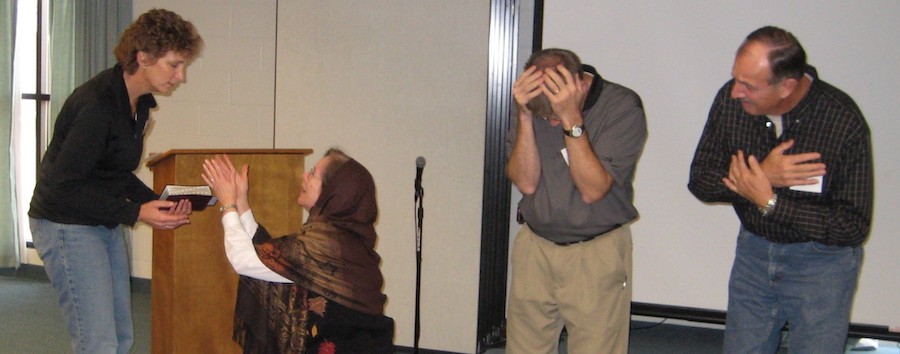
 we teach the storytellers how to tell their Bible stories using actions, expressions and voice inflections so that the story can be seen and heard.
we teach the storytellers how to tell their Bible stories using actions, expressions and voice inflections so that the story can be seen and heard. 
 of people, crowds, or places mentioned in the told story.
of people, crowds, or places mentioned in the told story. 
